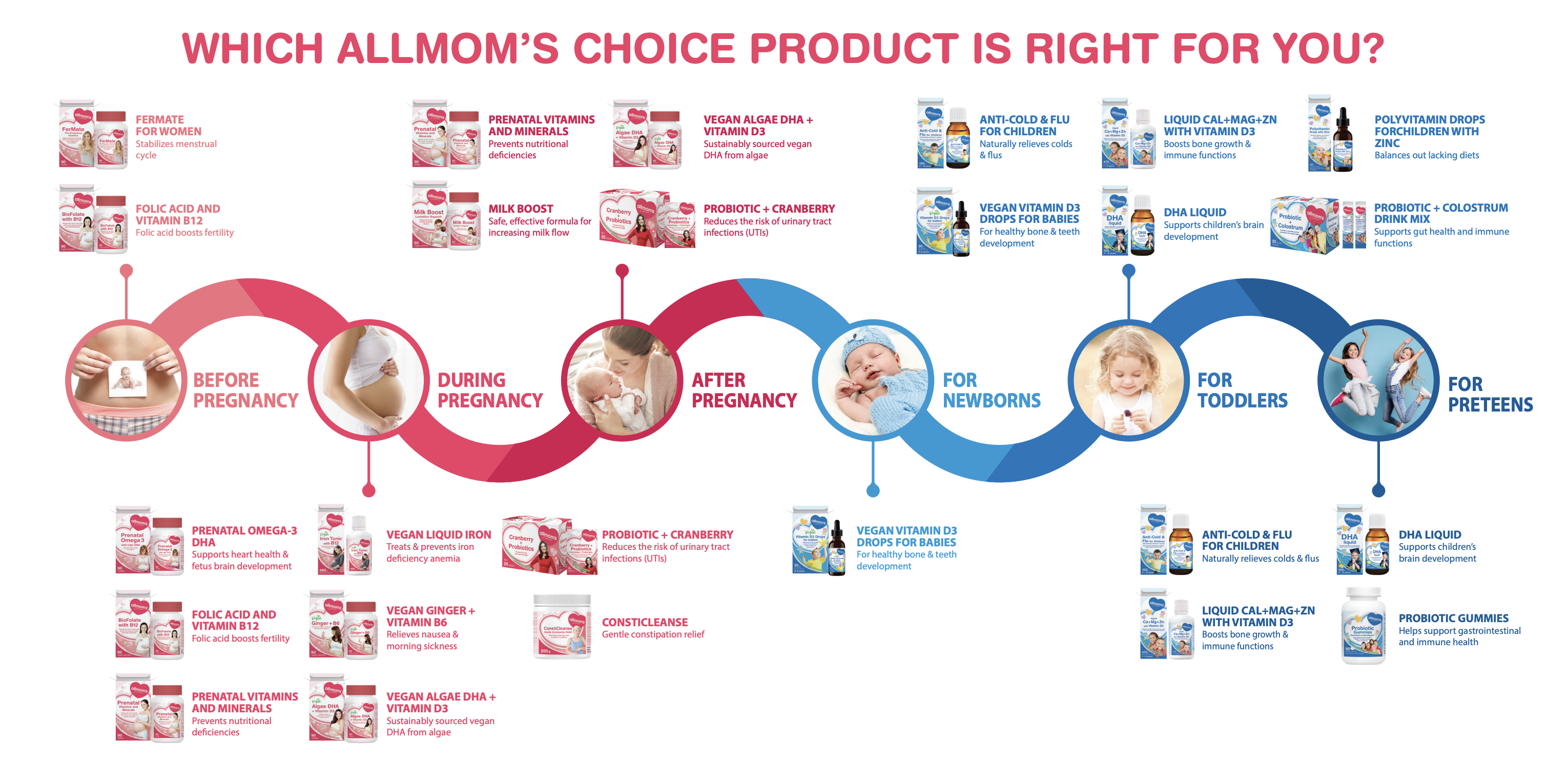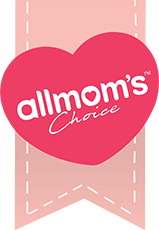
If you're reading this, chances are you're either planning to have a baby, already pregnant, or perhaps even breastfeeding a newborn.
First of all, congratulations on this exciting and life-changing journey.
As you embark on this new chapter, it's important to remember that your health and well-being, as well as your baby's, are top priorities.
And one of the most crucial ways to ensure a healthy pregnancy and a healthy baby is by getting the proper nutrition through supplements.
But with so much conflicting information, knowing exactly what supplements you need to take during this journey can be overwhelming.
So, we will suggest top supplements during different phases of your pregnancy and how they can help you and your baby.
Preparing For Pregnancy

Did you know it can take up to 12 months of preparation to optimize your fertility and ensure your eggs are in the best possible condition?
You see, the conditions your cells are exposed to in the three to four months leading up to conception are absolutely critical.
That means taking care of your body and making healthy lifestyle choices are crucial to supporting your fertility.
Studies have shown that couples who take nutritional supplements to support a healthier diet have quicker conception rates than those who don't.
Besides, the right supplements can even help reduce the risk of miscarriage and improve pregnancy outcomes.
Vitamin B9
Folate is the natural form of vitamin B9 found in food, while folic acid is the synthetic type. Regardless of the form, vitamin B9 is critical during the first 12 weeks of pregnancy. This is because it plays a key role in the development of your baby's circulatory and nervous systems.
But here's the thing: if you're not getting enough vitamin B9, it can lead to some severe problems.
Deficiency during early-stage pregnancy has been linked to neural-tube defects like spina bifida and early miscarriage.
The good news is it's easy to ensure you get enough of this important nutrient. Experts recommend taking a supplement of 400 µg per day, starting before you even conceive or as soon as you find out you're pregnant.
That way, you can rest assured that you're doing everything possible to support your growing baby's health.
Fermate contains folate, vitamin B12, and other nutrients that prepare your body for pregnancy. It is also free of preservatives, gluten, wheat, dairy, eggs, sugar, artificial flavor, or colors.
Omega-3 Fatty Acid
Research shows that consuming DHA and EPA, types of omega-3 fatty acids, can boost progesterone levels, a hormone crucial for regulating the lining of your uterus.
And when you're trying to conceive, having a healthy uterus is definitely something you want!
But that's not all. Omega-3 fatty acids are also incredibly important for your baby's development. For example, they support brain and eye growth, which is especially critical during the early stages of pregnancy.
So, how can you make sure you're getting enough omega-3s? Experts recommend aiming for two portions of oily fish per week and taking an omega-3 supplement.
It is best to aim for around 300 mg of DHA and 250 mg of EPA daily to ensure you're getting enough to support your fertility and your baby's health.
Prenatal Omega 3 with high DHA contains 500 mg of DHA (docosahexaenoic acid) and 250 mg of EPA (eicosapentaenoic acid) per softgel, making it an excellent choice for your omega-3 requirement.
Nourish Your Growing Baby: The Importance Of Nutrients During Pregnancy

Here are a few nutrients important during pregnancy:
Vitamin B
Did you know that morning sickness can be a real struggle for many women during pregnancy? And the worst part is what works for one person might not work for another.
But don't worry. There's a little vitamin that might just do the trick. Vitamin B6 has been shown to relieve morning sickness when taken in supplement form.
If you're considering trying it out, experts recommend taking 25mg every eight hours.
However, the maximum daily dose of B6 is 200mg. And, if you're already taking a prenatal vitamin, it's worth checking whether it contains B6, as you don't want to exceed your daily allowance.
Vegan Ginger + B6 not only gives you the required amount of B6, but ginger in the formula also helps with nausea, heartburn, and other digestive problems during pregnancy.
Iron
Did you know that around 20% of pregnant women become anemic at some point during their pregnancy? And let's be honest, feeling tired all the time is not the best way to enjoy your pregnancy.
That's why your doctor routinely screens you for anemia at the beginning of your pregnancy. And if you are anemic, it's important to make sure you're getting enough iron.
So, how much iron do you need? On average, pregnant women need about 30 mg of elemental iron per day to meet their needs.
Making sure you're getting enough iron can help you feel more energized and less fatigued throughout all three trimesters.
Vegan Iron Tonic with B12 is a great-tasting liquid formula making it easy to consume with no gastrointestinal distress.
Probiotics
Your gut health can actually have an impact on your baby's health. Yes. That's right. It's important to make sure your microbiome is in tip-top shape during pregnancy.
But don't worry. Special probiotic supplements are designed specifically for pregnant women, and they're also safe to take post-birth and during breastfeeding.
These probiotics can help support a healthy gut for both you and your baby, which can lead to a number of benefits, like reduced risk of allergies and improved digestion.
Cranberry + Probiotics contains 10 billion CFU good bacteria to restore your gut and urinary tract microbiome.
Supplements To Help Recover from Childbirth

You can start with:
A Multivitamin
The first 12 weeks after giving birth are often called the fourth trimester. During this period, your body goes through significant changes as it recovers from childbirth and adjusts to post-pregnancy life.
It's essential to focus on proper nourishment for both you and your baby. This is the time to increase your protein intake, and if you're breastfeeding, you'll need more energy.
You should also continue taking prenatal vitamins, including vitamin D, and a probiotic with live cultures to support breastfeeding.
Milk Boost contains an array of Vitamins like B1, B2, B6, B12, and D3, minerals such as calcium and magnesium, and herbs specific to boosting milk production. Moreover, the nutrient-dense formula ensures mothers have enough to share with their newborns for better health development.
Zinc
Zinc is a real superhero nutrient that helps keep your immune system strong and helps you heal.
It's extra important for newborns, so if your levels are low during pregnancy or while breastfeeding, your little one could miss out on this vital mineral.
Aim to get 8 milligrams of zinc daily to help keep your baby happy and healthy.
From Preconception to Pregnancy to Postnatal Care, There’s an Allmom’s Choice Product for You


 Canadian Dollars
Canadian Dollars
 COME SAY HI! @allmoms_choice
COME SAY HI! @allmoms_choice